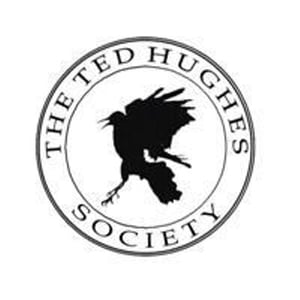Poetry by Ted Hughes
Lupercal (London: Faber and Faber, 1960)
Laura Webb (PhD student at the University of Sheffield) offers an appreciation of Hughes's second collection of poems.
Lupercal, published in 1960, was Hughes’s second collection, and his follow-up toThe Hawk in the Rain. In it we witness both a change in style, and a development of the themes Hughes had developed in his first collection. The boisterous rhythms and sound patterns of The Hawk in the Rain are subdued in Lupercal to a simpler key. Hughes has described the style of the collection as culminating ‘a deliberate effort to find a simple concrete language with no words in it over which I didn’t have complete ownership: a limited language, but authentic to me’[1].
Though Hughes had moved in 1957 from England to America, where he lived with his new wife Sylvia Plath, anyone reading the collection, with its poems detailing ‘Crow Hill’, ‘Mayday on Holderness’, ‘Pennines in April’, Heptonstall (as in ‘Dick Straightup) and Mexborough (as in ‘Pike’) could be forgiven for thinking Hughes wrote the collection whilst firmly established in Yorkshire. Despite the distance, they manifest a sharper eye for the detail of the Yorkshire landscape even than many poems of The Hawk in the Rain. Lupercal consequently projects the sense of having been written from down the lens of a telescope.
Key themes of Hughes, themes which would continue to develop throughout his poetic career, have their roots in Lupercal. The figure of the ‘tramp’, or exile from society, that he would continue to return to, originates within Hughes’s published work in ‘November’; and what would be one of Hughes’s central motifs, mythology, comes to the foreground for the first time in ‘Everyman’s Odyssey’ and ‘Lupercalia’ (‘Lupercal’ refers to an ancient, pre-Roman fertility festival). We also see a development of key themes from The Hawk in the Rain; war, in ‘Mayday on Holderness’ and ‘A Woman Unconscious’, and hubris in ‘Hawk Roosting’ and ‘Wilfred Owen’s Photographs’. The potent combination of these two themes would develop further in Hughes’s subsequent collections, Wodwo and, to most polemic effect, in Crow: From the Life and Songs of the Crow.
Some of the poems for which Hughes is best remembered appear in Lupercal. Unsurprisingly, perhaps, they are among the collection’s animal poems, the genre with which Hughes was to become most strongly and consistently associated. Great controversy surrounded the poem ‘Hawk Roosting’, a first-person narrative given from the point of view of the apparently real animal (unique for this in Hughes’s work), who declares:
I kill where I please because it is all mine.
There is no sophistry in my body:
My manners are tearing off heads –
The allotment of death.[2]
Hughes later described in an interview with Ekbert Faas that ‘what [he] had in mind was that Nature is thinking’[3], to great controversy. In ‘The Bull Moses’, Hughes occupies the opposite standpoint, documenting his inability to penetrate the bull’s subjectivity, which was ’too deep in itself to be called to’[4] in the ‘locked black of his powers’[5]. ‘View of a Pig’ embraces this distance to describe an animal ‘Just so much/ a poundage of lard and pork’[6], only to later challenge this rational stance in the deliberately objective and almost surreal last line ‘They were going to scald it,/ Scald it and scour it like a door step’[7]. Perhaps most significantly, and heading many lists of Hughes’s most famous works, ‘Pike’ details his eight year old self’s reverence and terror of the ‘Killers from the egg’[8] which he kept as pets and fished for, and which he finds ‘High and dry and dead in the willow-herb -/ One jammed past its gills down the other’s gullet’ [9], or, as he fishes as night, and, as the poem unsettlingly closes, ‘That rose slowly towards me, watching’. [10]
Hughes’s was ultimately disappointed with Lupercal, claiming he worried the book displayed a ‘lack of the natural flow and spirit of things’ [11]. In spite of this, the book met with positive reviews and is held in as great esteem now as it was at the time of its publication. It would be seven years until Hughes released his next book of poetry, Wodwo, which for reasons both creative and personal was to be vitally different in form and tenor.
Laura Webb is currently studying for a PhD focussing on Ted Hughes’s animal poetry at the University of Sheffield, supervised by Professor Neil Roberts. Amongst other places, she has recently had work, creative or critical, published in The Manchester Review, Poetry Ireland Review, the New Welsh Review, and Transverse, the online journal of the University of Toronto. In 2009 and 2010 she was shortlisted for an Eric Gregory award. She teaches on undergraduate Literature modules at the University of Sheffield.
Notes
[1] Ekbert Faas. ‘Ted Hughes and Gaudete (1977)’. Ted Hughes: The Unaccommodated Universe. Santa Barbara: Black Sparrow Press, 1980. P. 209.
[2] Ted Hughes. Collected Poems: Paul Keegan (ed.) London: Faber and Faber, 2003. P. 69.
[3] Faas, ‘Ted Hughes and Crow (1970)’, The Unaccommodated Universe. P. 199.
[4] Hughes. Collected Poems. P. 74.
[5] Hughes. Collected Poems. P. 75.
[6] Hughes. Collected Poems. P. 76.
[7] Hughes. Collected Poems. P. 76.
[8] Hughes. Collected Poems. P. 84.
[9] Hughes. Collected Poems. P. 85.
[10] Hughes. Collected Poems. P. 86.
[11] Neil Roberts. Ted Hughes: A Literary Life. London: Palgrave Macmillan, 1996. P. 54/ TH to Lucas Myers, Winter/ Spring 1961, Emory Mss 865, ff. 7.ns
